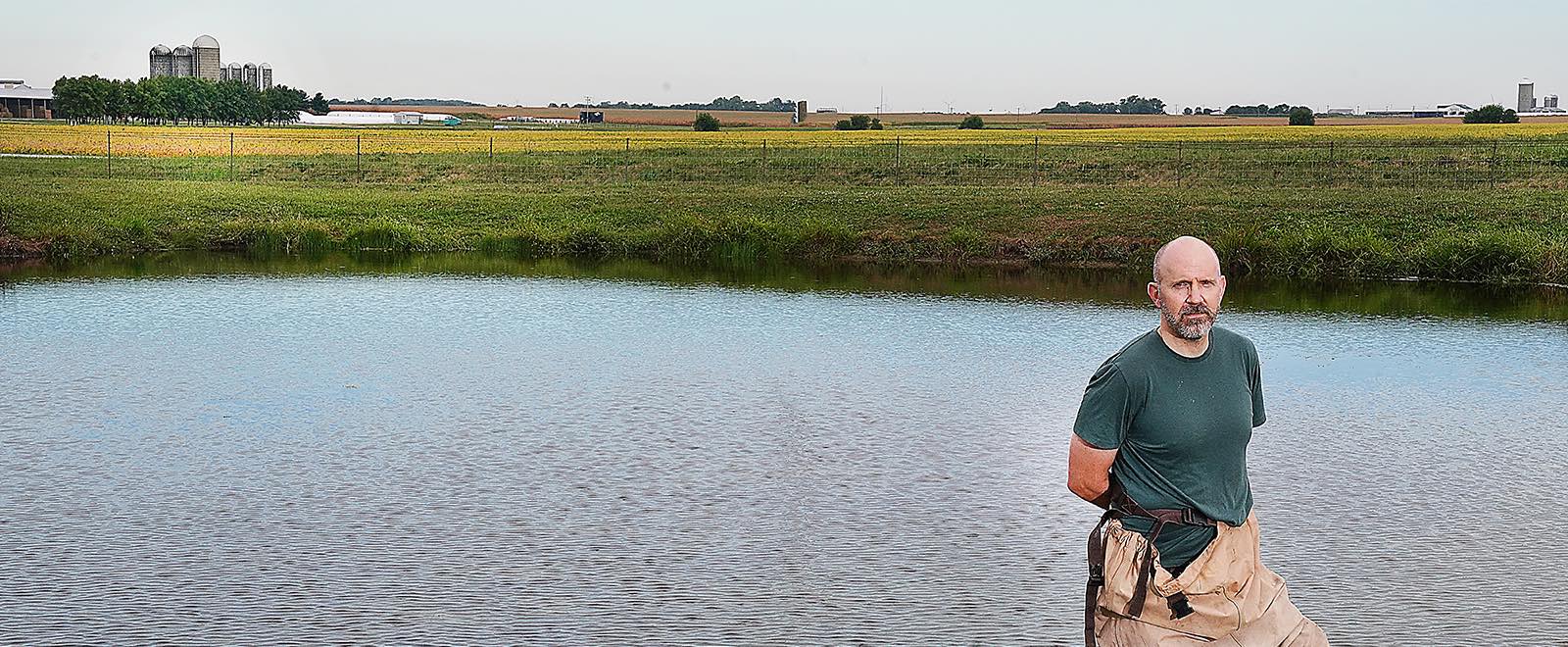Tomas Höök named as the 2021 recipient of the Agricultural Research Award
C
lose to finishing his biology degree at the University of Michigan, Tomas Höök decided to sign up for an ecology class.
Twenty-five years later, lessons from that semester continue to apply to the lifework of the recipient of the 2021 Agricultural Research Award, the highest honor for mid-career faculty members in the Purdue University College of Agriculture.
A native of Sweden, Höök, 47, came to Purdue in 2008 and has been a full professor of fisheries and aquatic sciences since 2018. He grew up in Birmingham, Alabama, where his father, a professor, stayed after a sabbatical. His mother worked as a biochemist. When dinner table conversations were about biochemistry and molecular biology, “I thought it was boring,” Höök says. Still, at Michigan he majored in biology. He didn’t think of ecology as a career – but that class changed his perspective.
“What got me excited was not the tree-hugging, environmental ethics type of stuff,” he says. “I thought it was really fascinating to be able to describe natural systems quantitatively, using models to try to wrap your head around how complex environmental systems work. That’s what I got excited about.”
Höök’s research focuses on fish and fisheries ecology in the Laurentian Great Lakes. He is the director of Illinois-Indiana Sea Grant, one of 34 such programs in the nation. Illinois-Indiana Sea Grant is charged with using research, outreach, and education to bring the latest science to Great Lakes communities and their residents. “It’s very much in line with the College of Agriculture’s mission when it comes to engagement,” Höök says.

As the saying goes, Höök says, studying fish is like studying trees, except they keep moving and you can’t see them because they’re underwater. “It’s hard to know where fish are, what habitats they’re inhabiting, where they’re reproducing. Things that seem like they’d be easy to tell are quite difficult.”
“What we do in our lab is try to understand how fish populations and fish communities, primarily in the Great Lakes, are structured, and try to understand how different environmental stressors affect those populations and communities.” Invasive species, climate change and nutrient runoff are examples of stressors.
“It’s complex. We don’t have a single method. We don’t just conduct lab experiments or just do data analysis. We use a variety of methods,” Höök says, including field surveys and simulation modeling. Analyzing data collected by state departments of natural resources and federal agencies can lead to a paper in an academic journal – and perhaps an Extension publication and a news story, too.
“That’s how I approach science: Try to understand the potential impact of a stressor on natural populations and communities and think about the right methods to assess that,” Höök says, “rather than having a certain method and looking for questions that fit that method.”
Purdue’s ties to the Illinois-Indiana Sea Grant have strengthened over 35 years. “We border the greatest freshwater system in the world. The university could be even more engaged with Great Lakes issues than we are.”
Freshwater is a limited resource, he points out. “We have a fair bit of freshwater around us, and we benefit from it. Other parts of the country clearly do not.” Protecting freshwater is essential, Höök says.
“I wish people were more aware of how beneficial freshwater systems are in terms of what they provide for not only people but other biota that live around here. We must think about how we can simultaneously protect systems like the Great Lakes but also benefit from them.”





